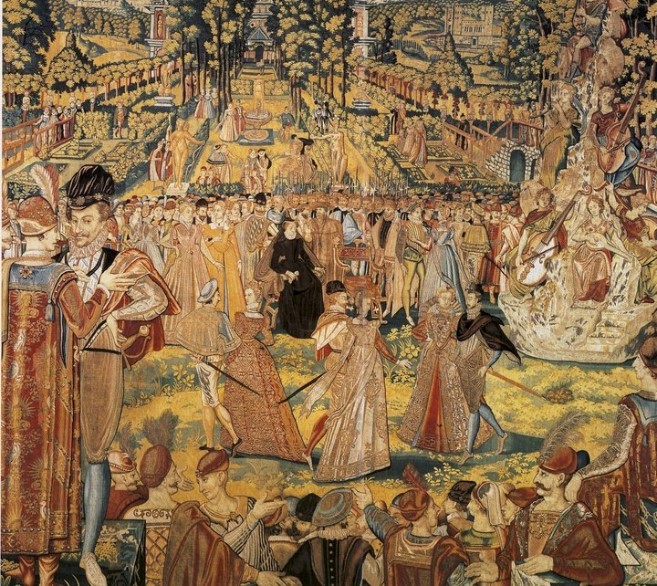Privacy at Court? A Reassessment of the Public/Private Divide within European Courts (1400-1800)
10-12 December 2020

The symposium will take place in a hybrid format of in-person and digital (via Zoom) participation.
Grand, extravagant, magnificent, scandalous, corrupt, political, personal, fractious; these are terms often used to describe the medieval and early modern courts of Europe. Moreover, this dynamic location within the social world was central to the legitimacy and authority of the monarch or princely power, acting thereby as a machinery that shaped European politics and culture. Architecture, art, fashion, patronage and cultural exchanges relied upon and were influenced by the visual spectacle of European courts. Researchers have convincingly and innovatively emphasised the public nature of courtly events, procedures, and ceremonies. Nevertheless, court life also involved certain zones of privacy. Indeed, what was recognized as private at European courts? How were such privacies obtained or constructed within the court? How did practices of privacy impact political deliberations at court? How was privacy put on public display?
These and similar questions urge us to reassesses the public nature of the early modern European court and to reconsider our present-day understandings of privacy. Indeed, the emergence of court studies as a scientific area of investigation relied heavily upon sociological modes of explanation, political history, and cultural studies of, e.g., performance and ritualization. Can issues of courtly privacy be fitted into our existing models? Or do we have to reconsider models and their representations of court life, when we take zones of privacy into account? Such a reassessment will fertilize the grounds for a much broader discussion of the past and the future of court studies.
The symposium provides researchers of court studies the opportunity to examine or reassess the role of privacy within European courts and court studies.
The symposium will also inaugurate and launch the new European branch for the Society for Court Studies. This launch will be celebrated with a virtual reception during the symposium proceedings.
Keynotes:
Privacy at Court? Reconsidering the Public-Private Dichotomy
Professor Barbara Stollberg-Rilinger
Wissenschaftskolleg zu Berlin/Institute for Advanced Study
The Monarch Exposed. Privacy in Practice at the Early Modern Court
Dr Dries Raeymaekers
Radboud University
REGISTRATION INFORMATION
Open Attendance: Given the hybrid format of the symposium (in-person and digital participation), the event will be open to non-presenters. In order to join the proceedings, participants must register in order to receive the links to access the symposium virtually. Additionally, participants will need to access and use the digital platform, Zoom, which will be the official platform for the symposium.
IMPORTANT NOTE: Only participants from specific countries will be admitted into Denmark. To check which countries are open or banned, visit https://politi.dk/en/coronavirus-in-denmark/travel-in-or-out-of-denmark/entry-into-denmark
If you are attending in-person, you will be required to follow the guidelines and alerts from Danish authorities, as well as follow protection guidelines by the Danish Health Authority and the University of Copenhagen. The protection information and guidelines can be found in the attached documents below.
SCS Reception: The reception to mark the launch of the European branch of the Society for Court Studies is open and free for attendees and SCS members. However, due to COVID-19 restrictions, the reception will take place virtually with a speech provided by the President of the Society for Court Studies, Helen Watanabe-O’Kelly.
Registration is now closed. For further queries or information, contact the organisers.
For participants - Please follow this link to pin your location and enter your name - Thank you
Organizers: Dustin Michael Neighbors, Postdoctoral Researcher, and Lars Cyril Nørgaard, Assist. Professor, at the Centre for Privacy Studies
